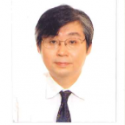The Changed Mission of Japanese Firm Subsidiaries Overseas
“Supply chain” is a term that captures well the essence of the activities of Japanese firms’ subsidiaries abroad. Their overseas plants, particularly in the machinery industry in Asia, are geared towards manufacturing components to take advantage of cheap labor in other Asian countries. Later the components they produce will be assembled in factories in Japan or other sub headquarters in big cities near their components producing factories.
According to METI’s statistical report “Basic Research on the Japanese Manufacturing Companies’ Overseas Activities,” Japanese firms’ subsidiary production as a percentage of total firm production has reached a record 29.4 percent, which is almost on par with American or European firms. Nevertheless, the nature of overseas activities does seem to be changing. Specifically, overseas R&D expenditures in FY2013 reached USD $5 billion, a 9.8 percent increase over FY2012. This is the highest figure since statistics started to be tallied. Overseas R&D expenditures per firm also increased by 8.5 percent over the previous fiscal year. Looking at individual sectors, the chemical, business machinery, and electric machinery industries witnessed very high rates of increase. Clearly, overseas Japanese subsidiaries are now looking at R&D as a new business focus in host countries. This signifies a shift to open innovation, which is significant because it is impossible to achieve a competitive edge only by conducting R&D in one’s own country. Innovative technology must be a product of diversity, a new aspect of innovation under globalization. At the same time, overseas innovation activities raise new kinds of challenges in regards to Japanese companies protecting their intellectual property rights (IPR). The Japanese government and Japanese firms should move to encourage trade negotiations, rules and practices that more strongly protect their IPR. Indeed, the need is urgent since the speed of innovation truly matters in terms of achieving global growth.





